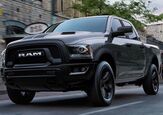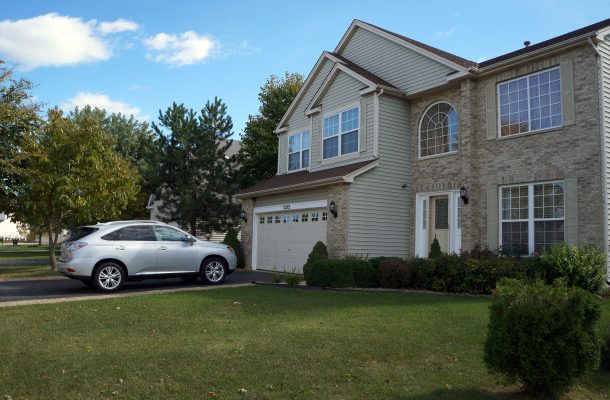Scientists Reveal What We Already Knew: Economy Cars and Gas Guzzlers Love Each Other

Picture a suburban street in an average middle class neighborhood. In each driveway sits two vehicles, as tradition states no modern American suburban family can make do with just one. Think about those two vehicles for a minute now.
Are they evenly matched? In other words, are they the same size? Do they fulfill the same requirements laid out by a single segment? Doubtful, and your mind’s eye already made this clear. One’s a Safari or Caprice wagon, the other’s a Datsun 210. One’s a Corolla, the other, a Suburban. A Focus and an F-150, and so on.
Does owning an economy car compel new car buyers to splurge when new-car buying time rolls around? Logic, and now science, says yes.
The white paper, prepared by researchers at the University of California-Davis, Massachusetts Institute of Technology and Yale University, is an involved one. Looking for equations? This crew’s framework has ’em in spades. Still, the results of the study’s social and economic model makes what we’ve known for decades clear: owning a smaller, fuel-efficient car is more likely to cause couples and families to go big with their next purchase.
Why did the researchers feel the need to prove the obvious? Well, that wasn’t the white paper’s sole intention. The researchers are more interested in the reduction of vehicle emissions, and argue that fuel economy standards might not be the best way to reduce overall emissions. That’s because ownership of a miserly fuel-sipper is more likely to lead to the ownership of a do-anything, go-anywhere utility vehicle, usually one with far less MPGs than its driveway mate.
Keep in mind that these findings aren’t the result of a survey or real-world experiment — we’re talking about estimates based on accepted scientific methodology. Reality might vary, especially in your own life. Based on an “attribute substitution” model that applies to other utility-related items, not just vehicles, the researchers estimate that for every 10-percent increase in fuel efficiency in a “kept” car (the one a couple or family already owns), the fuel efficiency of a newly purchased vehicle decreases by 4.8 percent — thus eroding the fuel savings of the older vehicle.
That’s not the only thing making that hypothetical driveway less green. Generally, miles travelled by members of a household increase following the purchase of a second vehicle. While some of the extra miles can be found on the kept car, the operation of both large and small vehicles shrinks the net fuel savings of the older economy model by over 60 percent, the researchers claim.
The findings work in both directions. The purchase of a larger second vehicle obviously translates into more fuel burned, but the purchase of an economy car as a second vehicle (if the first is a guzzler) means less fuel saved than the buyer might think. As such, the authors of the white paper feel that, in the interests of greenhouse gas reduction, efforts to change consumer behavior should focus not just on the car, but on the fuel as well.
And you all know what that means: a carbon tax at the pumps.
[Source: Wards Auto] [Image: Willard Losinger/ Bigstock]

More by Steph Willems
Latest Car Reviews
Read moreLatest Product Reviews
Read moreRecent Comments
- Master Baiter Cells capable of accepting fast charge have been available for years in power tools. You sacrifice energy density in cell designs of that type.
- 2ACL 500s seem to be decent if one stays on top of maintenance. I test-drove some middle-mileage examples car-shopping for the girlfriend and they made a stronger impression upon me than I expected. Haven't driven an Abarth, but I suspect they were among the best cared for given their enthusiast bent.That said, I recall the Multiair Turbo has some wacky service intervals (i.e. 30k miles for spark plugs), the car as a whole imposes utility and component accessibility challenges as well as fuel economy that's worse than several next-size up cars with comparable power. Interesting, but a terrible value IMO.
- Kjhkjlhkjhkljh kljhjkhjklhkjh Just looking at the PLUMETING cost of used tesla's (28k for a 3P ex) I contest the ''gubberment'' argument. If anything the gubberment is his BEST AND ONLY ALLY because with the increasing emissions regulation a cheap tesla is a hell of a buy.but as previously stated .. were in a saturated market for EV's right now.
- SCE to AUX This must have been a very interesting event.Of course, 'sustainability' may come with a price tag.
- Redapple2 TTAC ate my post. 2 paragraphs. Hit Send. No post apprears. 3rd time. I ll write less. Becoming the KMart of sites?


































Comments
Join the conversation
I own a F150 and a Taurus. The F150 is to tow our 3 trailers, haul ATVs, camping supplies, and various larger things. It's also pretty good in the heavy snow that we get around here in the winter. The Taurus is my daily. I've had a string of fuel-efficient cars paired with minivans and trucks, just like the research shows. As for why I have a Taurus now instead of the compact car that it replaced, I just got tired of the road noise and general discomfort of the small cars I owned. now I float to work in relative silence. It's worth the 8 mpg or so difference to me.
We have one vehicle that can do it all, that is carry people and stuff and the second vehicle, while not an economy car, the only real requirement it has is transporting typically one person from point A to point B and could transport my entire family of 5 in a pinch (it just so happens to also have 300hp). So the gas guzzler and economy car doesn't quite fit with me but the second, smaller vehicle, is more fuel efficient by a decent margin.